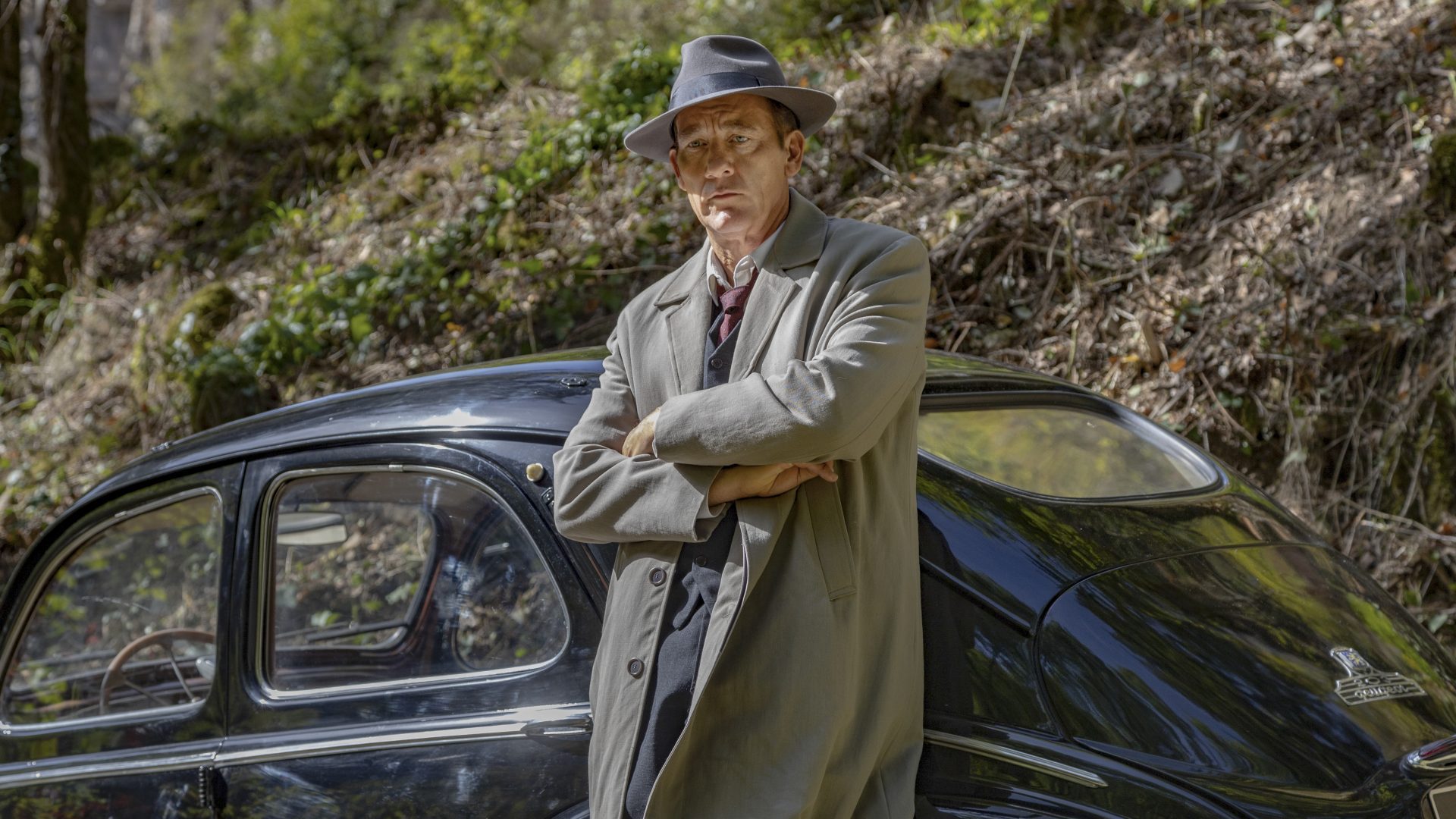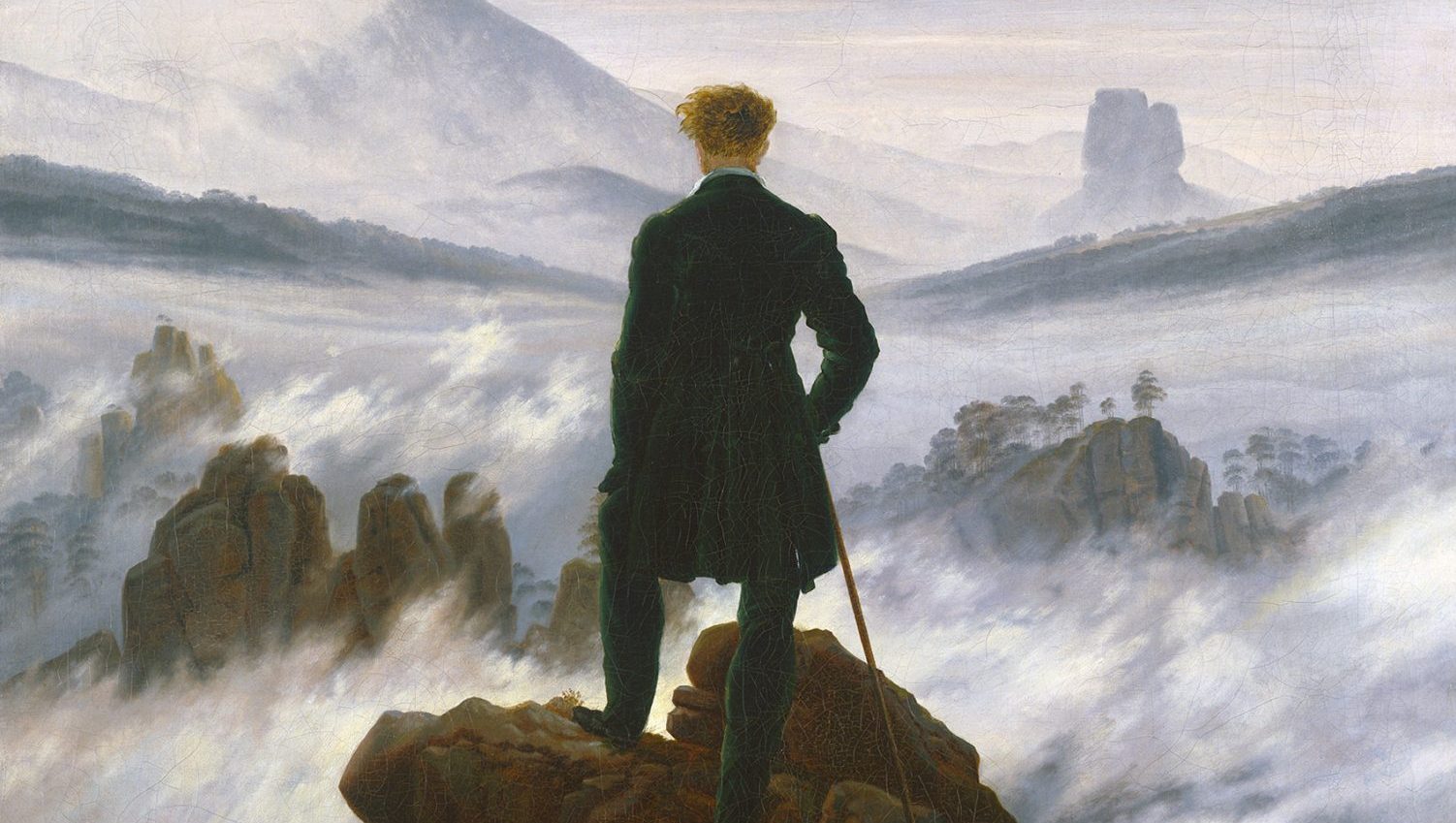Monsieur Spade gets its counter-punches in first. The title cards that open the first episode of the streaming series that revives Dashiell Hammett’s detective hero read like this: “Some say that Sam Spade was the greatest private investigator who ever lived… in San Francisco. But that was a long time ago, before he disappeared. Now there are those that say he lives somewhere in the southwest of France. And others say ‘Spade? France? Not a chance.’”
Questioning your own premise from the get-go is a bold move, but perhaps a necessary one here, where bold moves come thick and fast in a show that’s reinventing a character rooted solidly in our collective memory. You might not have read Hammett’s short stories featuring Spade, or the 1930 novel in which he made his debut, but you’ve almost certainly seen the timeless 1941 movie version of it – The Maltese Falcon. And even if that has somehow passed you by, you’ll have encountered at least one of the several world-weary, whip-smart private eyes for whom Spade was a template setter.
So, those bold moves. Spade, made famous on screen by New York City’s Humphrey Bogart, is played here by Coventry’s Clive Owen. The 1930s are left behind in the rear-view mirror of the lovely black Peugeot 203 he drives at the start of episode one; by the time an hour has elapsed, we’re in 1963. The soft lighting, hard angles and fast talk of that Spade/Bogart classic are replaced by sumptuous, sun-dappled colour and a slow-burn pace.
Spade is no longer hunting a McGuffin like that titular black bird, but finds himself in a murder mystery that turns into a political conspiracy thriller. And, most obviously, he has been uprooted from the metropolis in the shadow of the Golden Gate to Bouzols, a photogenic rural ville perched on the edge of a gorge, where he can be found listening to Juliette Gréco and discussing De Gaulle.
We watch as the things that define our old vision of Spade are stripped away from him. The detective is ordered to ditch his perma-lit cigarette by a doctor, who diagnoses early-stage emphysema (though while delivering a painful prostate examination, he declares there is some good news – referring to the author who disappeared in 1944, he tells Spade, “I think I’ve found Saint-Exupéry”). The fedora and trenchcoat that formed the character’s armour are removed as Spade swims naked in the afternoon sun, before encountering one of a series of mysterious strangers who seem to be in rather plentiful supply for a town of 2,000. A reputation hard-won in the city by the bay counts for little here. “We’ve all heard the stories about what a tough guy you once were,” sneers an adversary. “Samuel Spade…” says a French cop, “stupid fucking name.”
For some of those who cherish the gospels of American hardboiled detective fiction – the novels and contemporary films featuring Hammett’s Spade and Raymond Chandler’s Philip Marlowe – this has proved to be hackle-raising stuff. Monsieur Spade, which is made by the US network AMC and France’s Canal+, has been well received by critics, but there has also been a polite backlash from fans who think the character has left his heart in San Francisco. One verdict I saw online just after the show premiered was typical of several more: “Good stuff, but I’m not sure what it has to do with Sam Spade.”
What the creation of Monsieur Spade has to do with is that detective fiction is once again having a moment. Owen was recently seen in the streaming series A Murder at the End of the World, starring Emma Corrin as a Gen Z internet sleuth. Jodie Foster has been tempted out of semi-retirement to star in the terrific True Detective: Night Country. Director Rian Johnson moves between his Poirot-referencing Knives Out movies and Poker Face, his Columbo-referencing series starring Natasha Lyonne.
But why just reference detectives of the past when you can rework and revive them? In the US, copyright on a work of fiction expires 95 years after its release, which goes some way to explaining why the Hammett estate agreed to the radical shifts employed by Monsieur Spade. It may also reveal why a Marlowe streaming series is in the offing; Owen spent two years attached to it before coming on board here.
Chandler’s hero is surprisingly busy these days for a man who first appeared in 1939. In the last decade, the whiskey-drinking wisecracker has featured in impressive estate-sanctioned novels continuing the original story, written by Ireland’s John Banville, England’s Lawrence Osborne and Scotland’s Denise Mina. There has also been a modern-day Marlowe book by American writer Joe Ide which had this reader wondering, “Good stuff, but I’m not sure what it has to do with Philip Marlowe.”
When some of the core constituency it must appeal to is lined up against it, does Spade in France stand a chance? It certainly deserves to. Owen has specialised in detached brooders since 1998’s Croupier and is wonderful here, navigating “some very bad men and some very bad business” involving dead lovers, blackmail, Nazi collaborators, beautiful women and their angry husbands, trouble in Algeria and the murder of six nuns by a man dressed as a monk. Denis Ménochet, late of Inglourious Basterds, is perfect too as his foil, the Bouzols chief of police.
They are brilliantly served by the showrunners and scriptwriters Tom Fontana (City on a Hill) and Scott Frank, who created The Queen’s Gambit and also wrote the screenplays for Get Shorty and Out of Sight, two of very few film adaptations that get the master of dialogue Elmore Leonard’s work absolutely right.
Fontana and Frank don’t just deliver great lines, although there are plenty of those – “We’ve discovered two different men want you dead and my breakfast hasn’t even arrived yet,” says Ménochet’s character. Their decisions for Spade break the character out of the past and plant him in a time where duplicity, greed and moral compromise still abound, but where the cynicism runs even deeper and the stakes feel even higher than before. And where the rest of us still hope for a knight, however bruised, to fix things.
So, it’s good stuff. And what does it have to do with Sam Spade? Everything.




